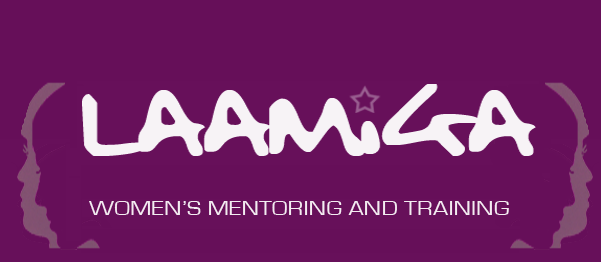Training For Mentors
Laamiga’s mentor training takes place over a few hours in at least 2 sessions and may be tailored to a certain extent to the needs of the mentor. It may take place in group sessions, or in several sessions on a one-to-one basis over the phone, depending on how many mentors are starting at the same time.
-
We start our training by looking at the basics of what a mentor does and the skills required. A mentor guides and advises, and helps the mentee to improve her self-esteem, direction and purpose. She does this by establishing trust through listening, being a good and positive role model and assisting the mentee to gradually set goals which she has the confidence and motivation to achieve. We also look at the way the mentoring partnership, and meetings are structured, in order to get the most out of the time available.
-
Listening is a core life skill and key to building relationships. It is absolutely essential to mentoring and we spend some time looking at common pitfalls, problems and how we can all develop our skills. Non verbal communication is also important, as is developing our questioning skills in order to receive the required information.
-
People with high self esteem and self confidence are more likely to achieve their potential and cope with the obstacles and problems they meet. Praise by itself is not enough and if the recipient does not feel what is being said is true, may contribute to a lack of trust. Being descriptive of positive actions and providing constant encouragement are helpful. Assisting someone to develop their confidence is challenging but not impossible and we aim to give mentors some of the tools to do this.
-
We set boundaries in many of our adult relationships, whether consciously or not, but for mentoring to be effective, it is necessary to do so. We consider how and why it is important to ensure that both parties know the limits of their mentoring relationship and what confidentiality means. We will also look at how to end the relationship either because it has reached the end of its natural course or because it has not gone so well.
-
We will look at how to get the first session with the mentee started, how to structure the relationship going forward and how to ensure that both parties know what the objectives are. It involves the completion of basic “contracts” or lists which sets out what both parties can contribute and assists the mentee to consider what she wants to achieve. Basic log-sheets are also provided and these should be filled out after each session in order to keep a record of what worked and what did not.
-
During the mentoring process, when the time is right, it is helpful to try and start to produce an action plan with achievable short or long term targets. This can then be reviewed at meetings. Targets should ideally be “SMART” ie specific and clear, measurable, achievable, relevant and time limited. Action plan templates are provided.

